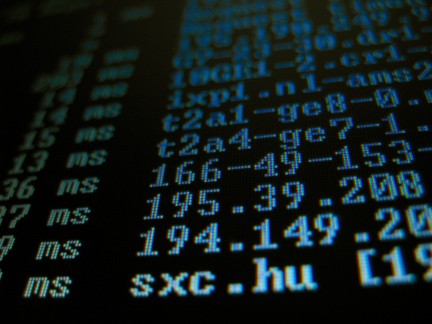by: Jason Mick

Lack of technical knowledge plagued the court for years, allowing the RIAA to victimize citizens
Judge Harold Baker, a judge at the Central District Court of Illinois, has ruled that an internet protocol address does not necessarily mean a specific person, and thus can not be treated as such in a criminal or civil investigation.
I. IP Doth Not a Person Make
Technology professionals have long understood that IP addresses are closer to a zip code than a social security number. Multiple people locally accessing or remotely funneling through a specific hotspot can share IP addresses. In short, IP address offers little clue to a users' true identity.
Yet for years the Recording Industry Association of America (RIAA), along with its international peers, has been victimizing individuals into out of court settlements, because their IP address was found to be sharing copyrighted materials. Some of these individuals didn't even have access to a computer, and in at least one case, the target of the RIAA complaint was a recently deceased elderly individual.
In court, the U.S. largely upheld IP logs as evidence in trials such as the cases against Jammie Thomas-Rassert and Joel Tenenbaum.
And recently, the U.S. Federal Bureau of Investigations (FBI) and its sister agencies have been conducting raids on suspected child pornography viewers based solely on IP logs -- with minimal background research. In many cases these raids were later discovered to be case of mistaken identity -- but that discovery came too late for brutalized homeowners.
II. The VPR Internationale Case
Judge Baker ruled against a Canadian adult film distributor in the case VPR Internationale v. Does 1-1017. In the case, VPR Internationale sought court authorization to demand customer data from internet service providers.
It had collected logs of IP addresses of users' illegally sharing its materials via bittorrent. By obtaining the subscriber information associated with the specific account, it hoped to coerce the subscriber into a settlement ranging from hundreds of dollars to a few thousand dollars. As there was 100,000 IPs implicated in its request, the company stood to make a multi-million dollar profit from the settlements.
But as it turns out Judge Baker rejected the request, pointing out that multiple users could share an IP and requesting information would violate the subscriber's privacy rights. He said the court was not in the business of authorizing a "fishing expedition" at the consumers' expense.
In the ruling [Scribd], he writes, "Orin Kerr, a professor at George Washington University Law School, noted that whether you’re guilty or not, you look like a suspect. Could expedited discovery be used to wrest quick settlements, even from people who have done nothing wrong? .. [T]he embarrassment of public exposure might be too great, the legal system too daunting and expensive, for some to ask whether the plaintiff VPR has competent evidence to prove its case."
III. The Road Ahead
The issue of IP addresses as evidence has hardly been laid to rest, though the practice was dealt a major blow by the ruling.
Generally, only higher courts will rule against an existing precedent in the U.S. So the question becomes when and if a higher court takes this issue up, will they come to the same conclusions?
The public in the U.S. will have to wait to see whether future justice follows the same logical, well-informed perspective of Judge Harold.
In the meantime, the ruling should prove tremendously valuable to those looking to defend themselves against the RIAA or other threatening parties. Texas lawyer Robert Cashman, who has represented several individuals in scuffles regarding IP-related copyright claims, blogs, "We may have just seen the order that may end all future John Doe lawsuits."
Recent legal decisions have also cast doubt on entertainment industry organizations' claims that "making available" equated to file-sharing.
